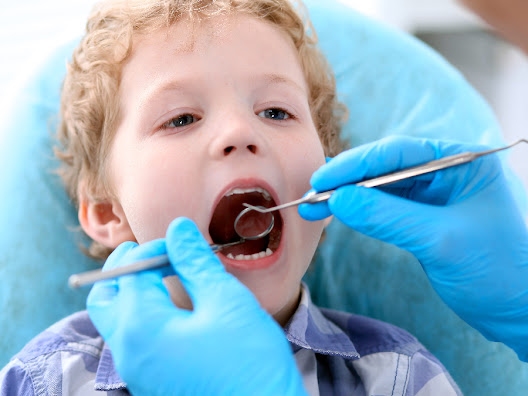Why Kid-Friendly Dentists Use Psychology to Make Dental Visits Better for Your Child?
Have you ever wondered why some dental visits leave your child in tears while others end with smiles?
The difference often comes down to psychology. Finding a kid-friendly dentist in Saskatoon who understands child development can transform your child's dental experience.
These dentists don't just clean teeth—they connect with young patients on their level, turning fear into comfort and building trust that lasts for years.
Children experience dental care differently than adults. Their developing brains process fear, pain, and unfamiliar situations uniquely.
By applying child psychology principles, pediatric dentists can address these differences effectively, making treatments more successful and less stressful for everyone involved.
How Psychology Training Changes the Dental Experience?
When dentists understand child psychology, they change their entire approach to treatment.
From the moment your child walks through the door, every interaction is designed with their emotional wellbeing in mind.
Research published in the Journal of Pediatric Dentistry shows that dentists with psychology training achieve 67% higher cooperation rates from child patients.
This means smoother appointments, better treatments, and fewer traumatic experiences.
These psychology-informed practices include:
● Age-appropriate communication that meets children where they are developmentally
● Emotional validation that acknowledges fears without magnifying them
● Behavior management techniques that prevent and address anxiety responses
● Environmental modifications that make the dental office less threatening
The Science Behind Children's Dental Fears
Understanding what makes children afraid at the dentist helps professionals address these concerns effectively. Dental anxiety in children typically stems from several factors:
Fear Source | Psychological Impact | How Trained Dentists Address It |
Fear of pain | Triggers fight-or-flight response | Use of comfort techniques, honest pain management discussions |
Fear of the unknown | Creates anxiety about what will happen | Step-by-step explanations, preview of tools and sounds |
Previous trauma | Creates anticipatory anxiety | Gradual exposure, positive reinforcement, trauma-informed care |
Parental anxiety transfer | Children absorb parents' fears | Parent education, separate communication with children |
Studies show that up to 20% of children experience significant dental anxiety, but this number drops dramatically when psychological approaches are incorporated into their care.
Techniques That Make a Difference for Your Child
Psychology-trained dentists use specific methods that can make dental visits much more pleasant for your child:
Tell-Show-Do is a simple but powerful technique where dentists explain a procedure, demonstrate it on a model, then perform it. This approach reduces fear of the unknown by 56% according to research.
Positive reinforcement celebrates small victories during the appointment. Something as simple as a specific praise for sitting still can build your child's confidence and cooperation.
Distraction techniques like ceiling TVs or interactive stories help redirect your child's attention away from procedures. Children who are actively distracted report feeling 43% less discomfort during treatments.
The power of language makes a huge difference. Trained dentists avoid scary words like "drill," "shot," or "hurt," instead using child-friendly alternatives that don't trigger fear responses.
Creating Long-Term Dental Health Through Psychology
The psychological approach isn't just about getting through today's appointment—it's about setting your child up for a lifetime of good oral health. When children have positive dental experiences, they're more likely to:
● Continue regular dental visits as adults
● Maintain better home care habits
● Experience less dental anxiety throughout life
● Have fewer untreated dental problems
"The way a child experiences dental care before age 10 often determines their relationship with oral healthcare for decades to come," notes Dr. Marcus Chen, pediatric dental researcher.
How Parents Can Support Psychology-Based Dental Care?
You play a crucial role in reinforcing the psychological approaches used by your child's dentist:
Be mindful of your own dental anxiety, as children can sense and adopt your fears. Practice positive dental talk at home, focusing on the benefits rather than potential discomfort.
Your words and attitude have powerful effects on how your child perceives dental visits. Even simple phrases like "the dentist helps keep your teeth strong" can create positive associations.
Finding the Right Kid-Friendly Dentist
When looking for a kid friendly dentist in Saskatoon who uses psychological approaches, watch for these signs:
● An office environment designed specifically for children
● Staff who speak directly to your child, not just to you
● Willingness to answer questions and explain procedures
● Flexibility in approach based on your child's specific needs
● Training specifically in pediatric behavioral management
The right dental provider will make your child feel seen, heard, and respected throughout their visit, building positive associations with dental care that will benefit them throughout their life.




Comments
Post a Comment